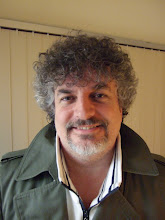Likewise, the days of a patient totally putting their lives into their doctor’s hands are over. People don’t trust doctors to always do the best thing. How could they? The doctor does not know the situation as well as the patient. It must be the patient’s choice, and they must be making an informed choice, not one based on a five minute sales pitch from a doctor.
If consumer-driven healthcare sounds good to you, that's because it is. It is a very good thing. Dr. Bernie Siegel, a holistic MD and author, noticed many years ago that the patients who took the most interest in their own well being while in the hospital had the best recovery rates from diseases and injuries. These patients are called “troublemakers” by hospital staff. But the truth is, they live. The “compliant” patients die in much greater numbers. Take your pick.
The consumer-driven healthcare revolution is represented in the insurance industry by the emergence of the health savings account (HSA). This is a savings account (like a bank account) that allows you to save tax-deferred money for healthcare expenses whenever you might need it. You can take the money out without paying tax, as long as you're using it for healthcare expenses.
The Health Savings Account allows people to use a much higher deductible on their health insurance, reducing the cost of insurance payments by 40%, 60% or even 80%.
My wife and I would pay about $1000/month for low-deductible health insurance. But with a high-deductible plan and an HSA, we pay $175. That’s an $825, or 82.5% savings every month, $9,900 a year. That buys a lot of yoga classes, or acupuncture treatments, or massage therapy. Or it can go towards a very nice retirement savings. Or a car after two years. Whatever we like.
The downside of consumer-driven healthcare is that whenever you take over control of a situation, you also have more responsibility. You have control of your healthcare dollar, but now you have the responsibility to spend it in the right places. And you need the discipline to do what you know is right. That’s often very hard.
But overall, consumer-driven healthcare is a big step forward. In the next two or three years, many Americans will take charge of their own healthcare.
Join the consumer-driven healthcare revolution! You’ll save money, be healthier and have more choice over your own life.
Daryl Kulak is the author of Health Insurance Off the Grid, a book that provides a simple, effective plan to reduce insurance costs for the self-employed, unemployed and underinsured. The book is available at the Website http://www.healthoffthegrid.com
Article Source: http://EzineArticles.com/?expert=Daryl_Kulak

No comments:
Post a Comment